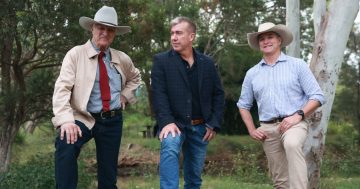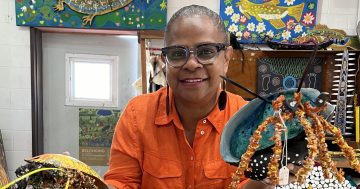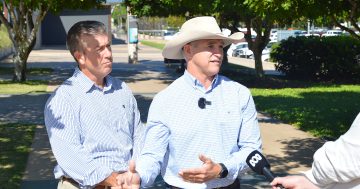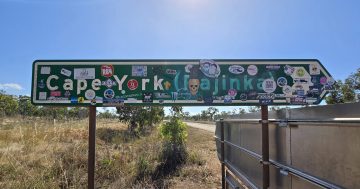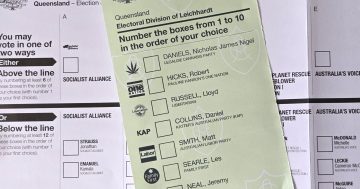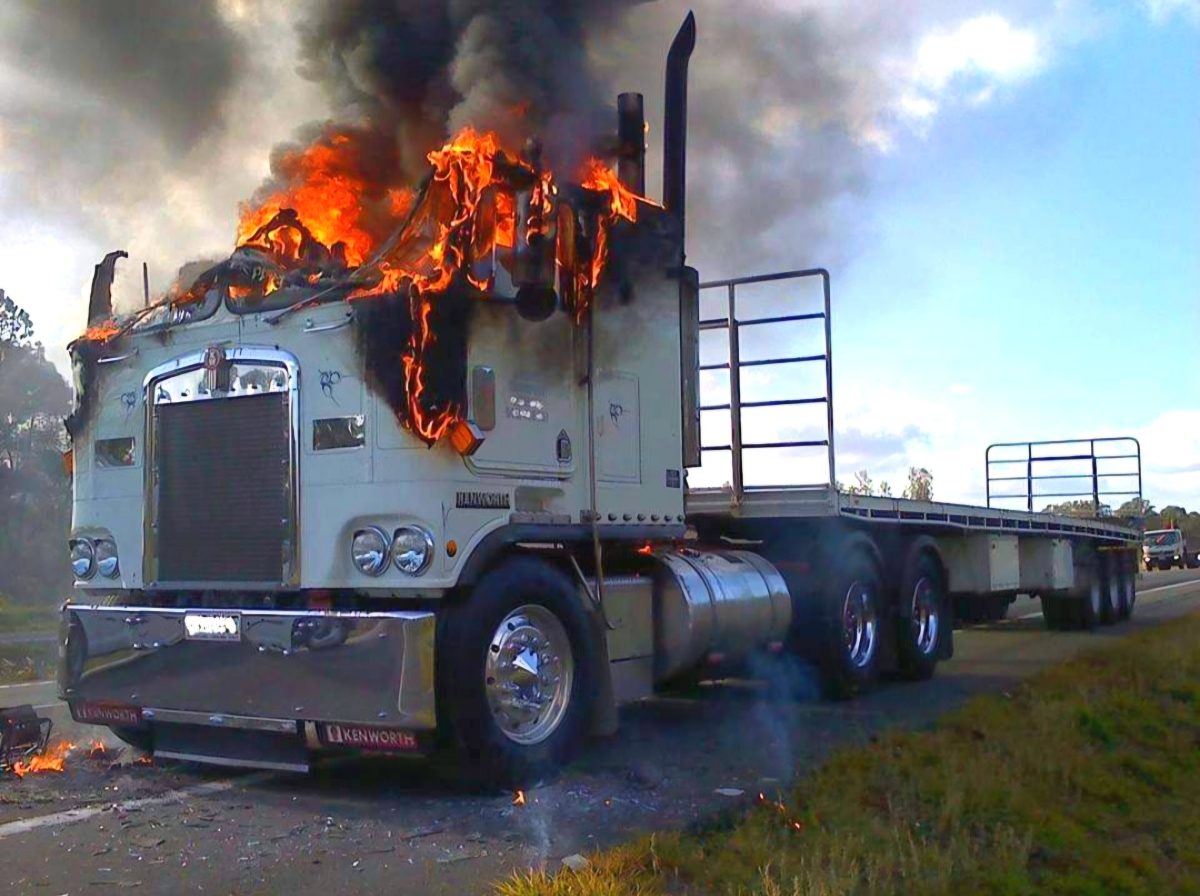
With less than 100 days to go before Queenslanders head to the polls, this photo pretty well sums up the state of democratic politics across the board, says editor Lyndon Keane. Photo: supplied.
With the Queensland election now less than 100 days away, it seems a suitable time to ask the question that seems to be on the mind of everyone with half an interest in politics: why is democracy so broken?
The United States has a population of 340 million, yet the two blokes purportedly most suited to running the place are an octogenarian who looks like he’d prefer to have a nap than lead the free world, and a guy who couldn’t lie straight in bed, and was last week the target of the most politically convenient assassination attempt in history. Oh, did I mention an army of obsequious supporters wearing ear bandages in solidarity, or rolling out Hulk Hogan as some type of shirt-ripping political inspiration at a rally?
Democracy across the Pacific Ocean is proper broken. Like plug-it-in-and-risk-burning-the-house-to-the-ground broken.
We haven’t reached these lengths of lunacy in Australia yet, but we are certainly heading down Potential Road without worrying about the speed limit. Think of our democratic system as that microwave you know you shouldn’t use because of the intermittent sparking and burning smell, but you do anyway because there’s no easier way to cook your instant oats each morning.
One of the biggest contributors to democracy’s failure is the complete inability for our elected leaders to have an adult, bipartisan debate about key issues without it deteriorating into a name-calling, infantile slanging match designed to score political points and impress the party faithful, rather than find solutions.
Take the battle for the Cook electorate, for example. Every candidate I’ve interviewed has identified cost of living concerns, a lack of progress on critical infrastructure, skyrocketing freight costs and remote sustainability frustrations as the big political red flags heading towards 26 October. Despite this shared recognition, the seemingly automatic next step for many of the candidates was to point the finger and outline how abysmally another party has been doing things, or would do things, were they to come to power.
We know things aren’t going great. We live here. We have no option but to notice whether politicians are delivering on their promises, or whether the government has just written us off as not having enough potential return for its pork barrelling buck. It’s why we try to heat up our breakfast in short bursts each day, rather than the recommended cooking time, fingers crossed the political microwave isn’t going to make popping and crackling sounds before setting fire to the kitchen.
With under 100 days to go until we head to the polls, the political promises, rhetoric and photo opportunities are about to ratchet up to intolerable levels. The candidates will be shouting at one another and making promises they have no intention of keeping, party sycophants will be belittling those waving different coloured flags and anyone who indicates they intend to vote “the other way”, and the rest of us will be asking ourselves how governing in the best interests of the people morphed into a modern-day re-enactment of Lord of the Flies.
Irish writer and political activist George Bernard Shaw once described democracy as “a device that ensures we shall be governed no better than we deserve”. He makes a decent point, given the current state of play here and abroad, because until we stop adhering to the political status quo and start voting for a new normal and stronger, genuine representation that puts people first, not parties, we’ve absolutely got what we deserve.
The old idiom “gone to the dogs” basically refers to something that has spoiled, gone hopelessly wrong or lost its positive characteristics. Can we lump our current democratic model of leadership and representation with that description? Woof, woof.


